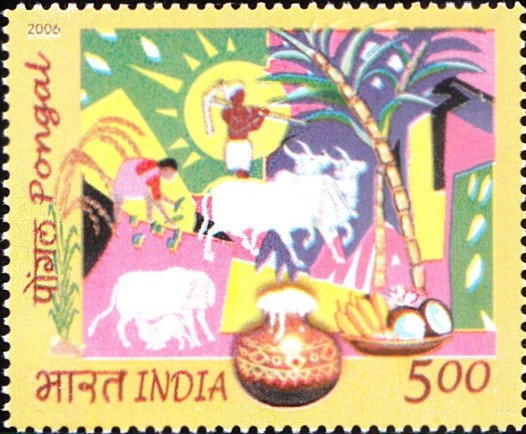
Pongal
A commemorative postage stamp on the Thai Pongal (Makar Sankranti) festival, a four-day harvest festival dedicated to the Sun God :
 Issued by India
Issued by India
Issued on Jan 12, 2006
Issued for : The Department of Posts honours this great tradition and also shares in the happy festivities by issuing this commemorative stamp on Pongal.
Credits :
Stamp & FDC : Sankha Samanta
Cancellation : Alka Sharma
Type : Stamp, Mint Condition
Colour : Multicolor
Denomination : 500 Paise
Stamps Printed : 0.8 Million
Printing Process : Photogravure
Printer : India Security Press, Nashik
About :
- India is a land of festivals and many of the great festivals are related to the traditional agricultural activities of its people. Pongal, one of the most important festivals, particularly of the Tamil people, is a thanksgiving ritual for a bountiful harvest which is celebrated with great joy by one and all.
- This festival follows a solar calendar and is celebrated on the same days each year. The actual festivities of Pongal begin on 13th January and lasts for four days. From an astronomical standpoint, this is an important period because this is the time when the sun enters the Northern Hemisphere. The sun traverses from the Tropic of Capricorn to the Tropic of Cancer via the Equator from 14th January to 14th July, and this movement is termed as Uttarayan (summer solstice). The festival also marks the withdrawal of the North East Monsoons.
- The first day of the Pongal festival is called Bhogi. The highlight of the day is the bonfire into which old items like rugs, mats, papers, clothes, etc. are consigned, marking the beginning of a new life.
- The second day is ‘Pongal’, the most important day, when great importance is given to the Sun. Decorative motifs called ‘Kolams’ (Rangoli) are drawn on the floor by the women-folk, generally with rice flour. In the early morning, the family members gather outside their houses and cook sweet rice, known as ‘Pongal’, in clay pots. The overflowing pot is perceived as an auspicious sign of abundance and prosperity and excites the people to raise a chorus ‘Pongal O Pongal’. Specialities of the day include the Venpongal (salty dish) and Chakkarai Pongal (dish made with jaggery). The celebration of ‘Makar Sankranti’ in other parts of India coincides with Pongal.
- The third day is dedicated to cattle and is called Mattu Pongal. The cattle are gaily decorated with beads, bells and flowers – their horns painted and capped with gleaming metals. A cattle procession is taken out and people offer fruits and other goodies to the animals. However, in many places, the main attraction of this day is the bullfight (Jallikattu) in which young men participate with enthusiasm to show their skill and courage. The aim of the sport is to seize the reward, which is put in a cloth and tied to the horns of the bulls.
- Kaanum Pongal is the fourth and final day of the festival. After so many days of merrymaking, people take things easy on this day. The spirit of sharing with all, animals and human alike, is embodied in the rituals associated with Kaanum Pongal. Resembling the North Indian festival of Raksha Bandhan, when the sister ties a Rakhi on the wrist of the brother as a token of love and in return for protection, this day also celebrates the bond between siblings.
- In essence, the festivities of Pongal mark a reaffirmation of traditional values revolving around family and sharing.


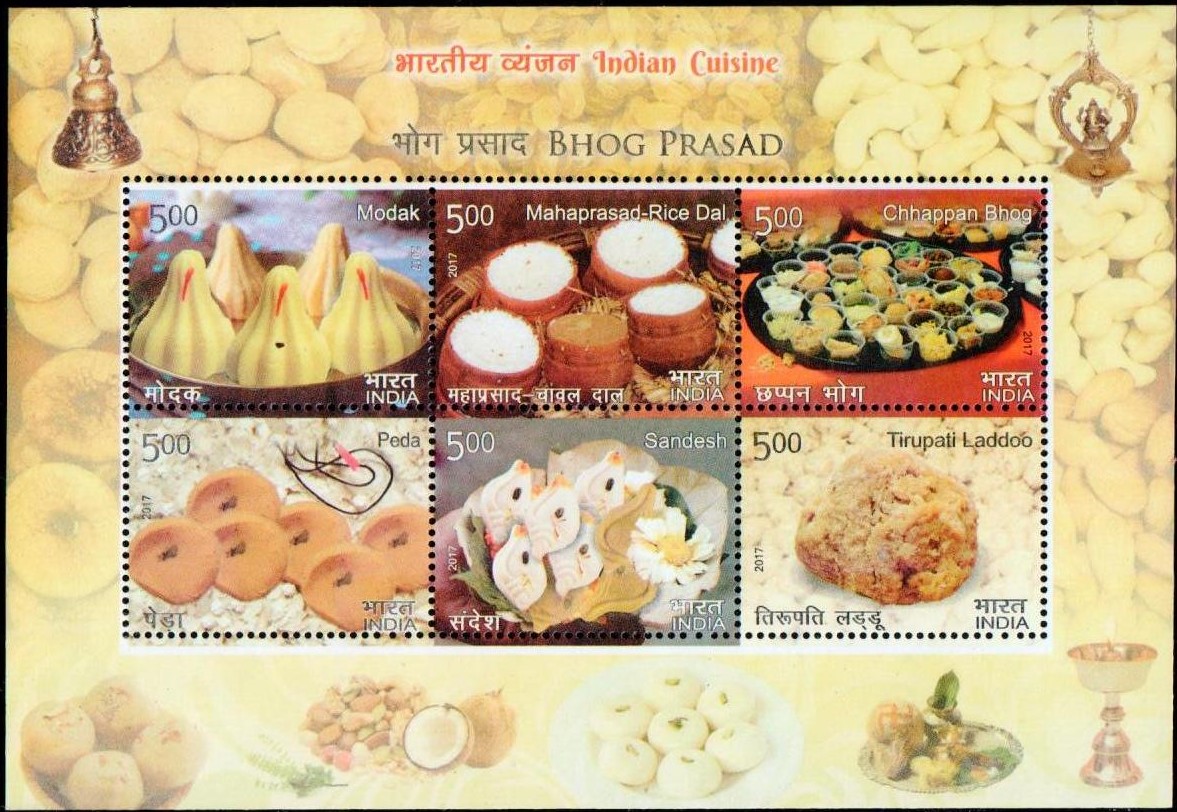

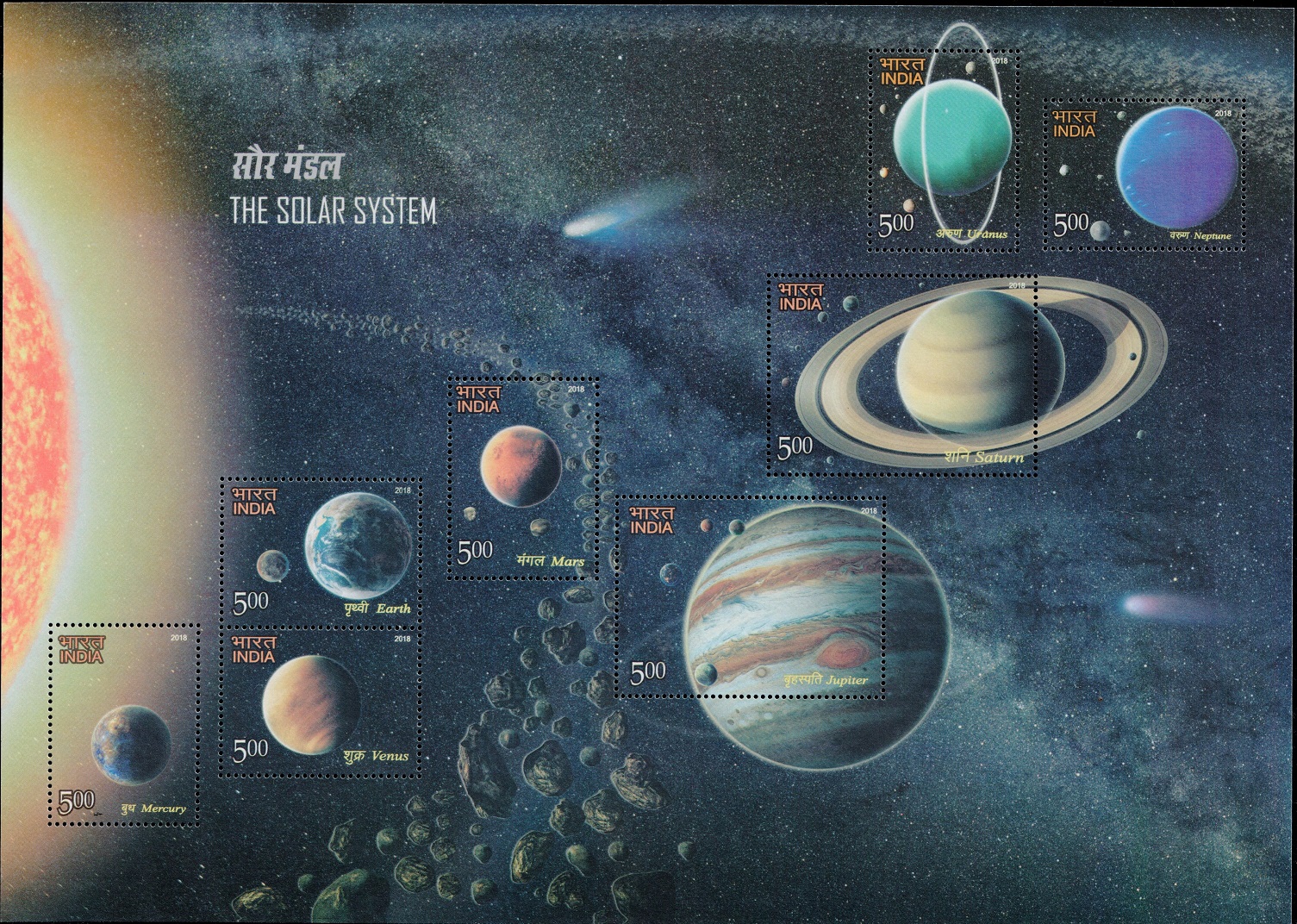
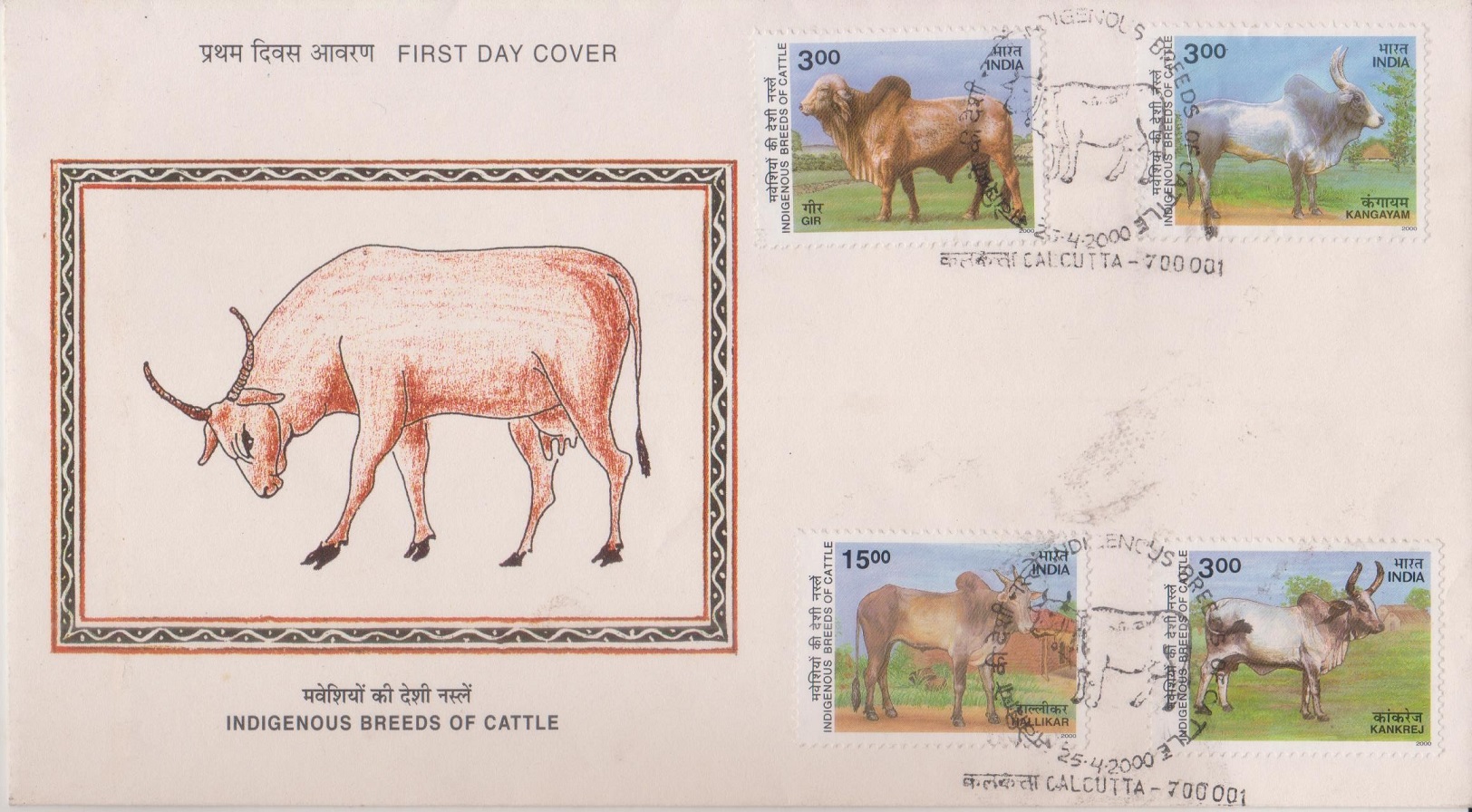

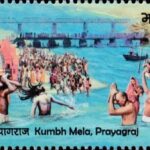
[…] an established feature as in most other countries. We send greetings on occasions like Deepawali, Pongal, Durga Puja, Baisakhi, Bihu, Christmas, Id and other regional […]
[…] it is called Huggi. Every year in January month, Tamils and Telugus celebrate the harvest festival Pongal / Makar Sankranti during which Pongal is […]